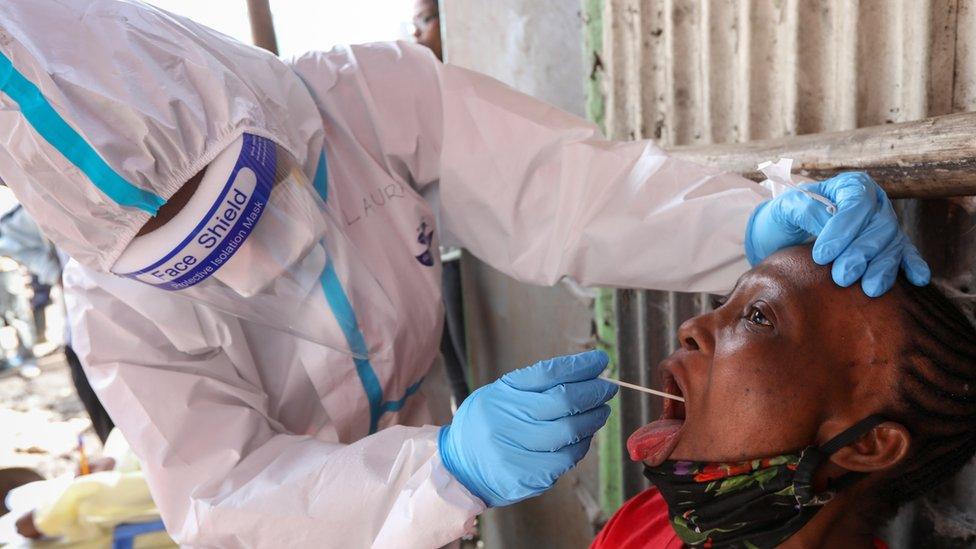Coronavirus: South Africans cheer as alcohol goes back on sale
- Published
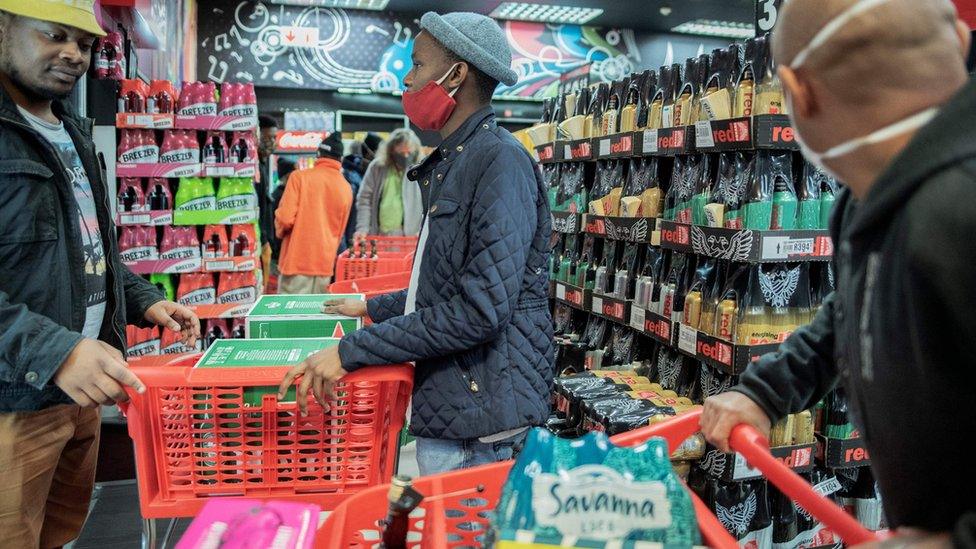
Traders will only be permitted to sell alcohol for consumption off-site
Long queues have formed outside shops selling alcohol in South Africa after restrictions on its sale, imposed two months ago as part of measures to fight Covid-19, were lifted.
Social media posts showed people, who had braved the morning chill, cheering as buyers emerged with their bottles.
The alcohol ban was to allow police and hospitals to better focus on tackling the coronavirus, the authorities said.
Alcohol-fuelled violence is a huge problem in South Africa.
Doctors and police say the ban has had a dramatic impact, contributing to a sharp drop in casualty admissions.
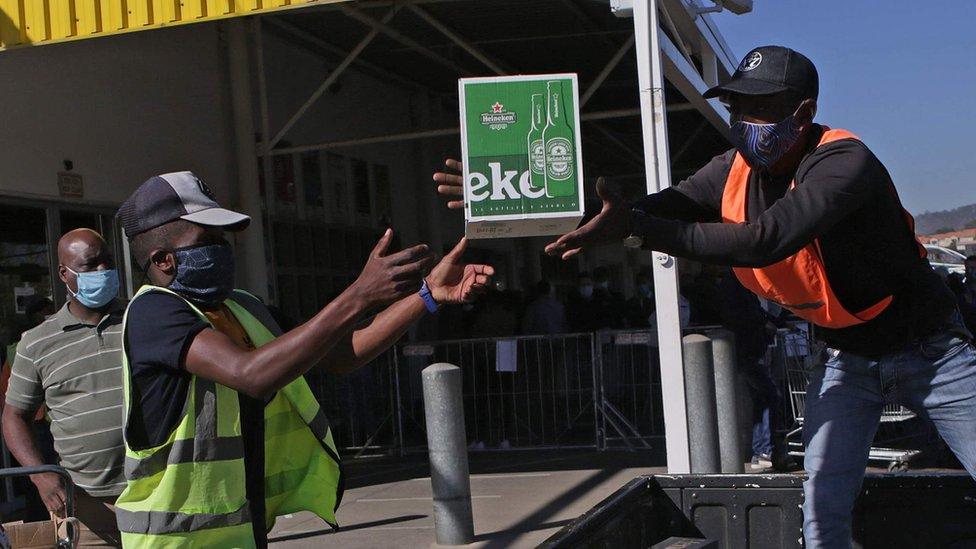
But the country's brewers and wine makers had complained that they were being driven out of business.
The government has also lost a fortune in tax revenue, reports the BBC's Andrew Harding in Johannesburg.
The authorities are now in the process of easing one of the toughest lockdowns in the world.
However, the planned reopening of schools has been delayed for a week.
What are South Africans saying about the ban?
President Cyril Ramaphosa said that from 1 June the sale of alcohol would resume, but only between 09:00 and 17:00 and not on Friday, Saturday or Sunday.
Also, the alcohol can only be drunk at home rather than where it was bought.
In rural areas of the KwaZulu-Natal province, clean water is scarce, making hand washing difficult
The main opposition party, the Democratic Alliance (DA), had previously argued against banning alcohol sales, instead favouring a "smart lockdown model" that would allow people to buy alcohol for a few hours each day.
The lifting of the ban has, however, been criticised by Julius Malema, the leader of the radical opposition Economic Freedom Fighters party.
"Alcohol is destructive, alcohol destroys families, alcohol destroys lives, alcohol contributes to unprotected sex and spreading of diseases," Mr Malema said.
Studies in South Africa have found that alcohol was a major factor in crimes including murder, rape and assault.
The authorities had warned customers not to rush to the shops but rather stagger their purchases throughout the week to avoid crowds and to reduce the risk of infection, the BBC's Vumani Mkhize in Johannesburg reports.
On Twitter, "Tops", the name of a liquor store, and "level three" are the top trending topics in South Africa, with people sharing pictures of celebrating - some singing - the return of alcohol sales:
Allow X content?
This article contains content provided by X. We ask for your permission before anything is loaded, as they may be using cookies and other technologies. You may want to read X’s cookie policy, external and privacy policy, external before accepting. To view this content choose ‘accept and continue’.

Allow X content?
This article contains content provided by X. We ask for your permission before anything is loaded, as they may be using cookies and other technologies. You may want to read X’s cookie policy, external and privacy policy, external before accepting. To view this content choose ‘accept and continue’.

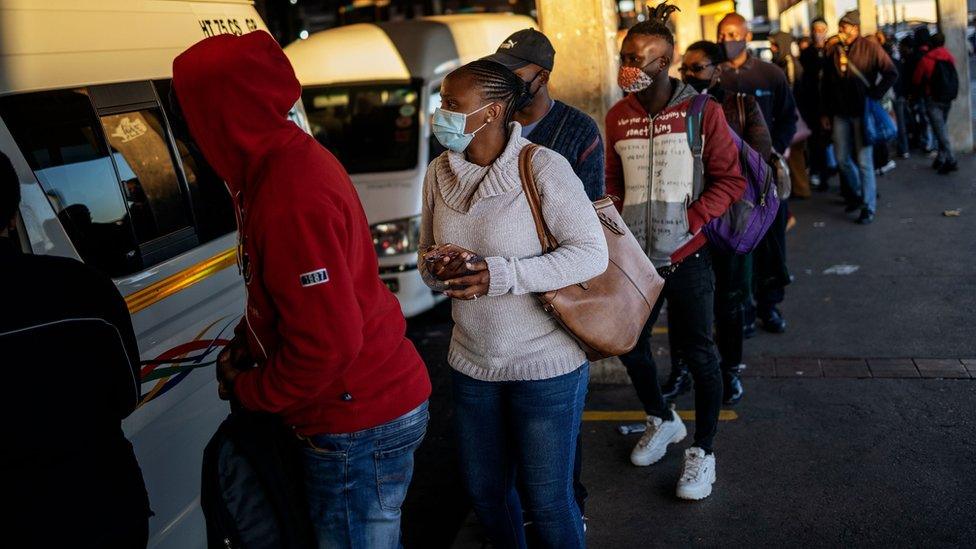
Queues of people waiting for buses to return to work
At least eight million people are estimated to have gone back to work on Monday as most sectors of the economy have resumed operations.
What about schools?
Teachers and learners were expected to return to school on Monday but the authorities have pushed back the resumption to next week.
Trade unions representing teachers have urged their members to stay at home until health and safety regulations to curb the spread of coronavirus were met, the BBC's Nomsa Maseko in Johannesburg reports.
The education department had promised to disinfect buildings, and provide clean, running water and personal protective equipment for all schools. But many had still not received the items, she adds.
Education Minister Angie Motshekga said in a statement late on Sunday that the authorities will use this week to prepare schools on safety plans against the virus.
The DA party criticised her for postponing the opening of schools after giving reassurance last week that they were ready to resume operations.
"The last-minute reversal has been a source of confusion and uncertainty among parents, who have had to make the difficult decision of whether or not they were going to send their children to school," a DA statement said.
Despite the easing of restrictions in South Africa , infection rates for coronavirus continue to rise. Cape Town is currently experiencing a sharp spike and other major cities are expected to follow suit.
The country is also grappling with a serious shortage of testing equipment.
It has reported more than 32,000 cases of coronavirus and 683 deaths.

A SIMPLE GUIDE: What are the symptoms?
HOW A VIRUS SPREADS: An explanation
RECOVERY: How long does it take to get better?

- Published31 May 2020
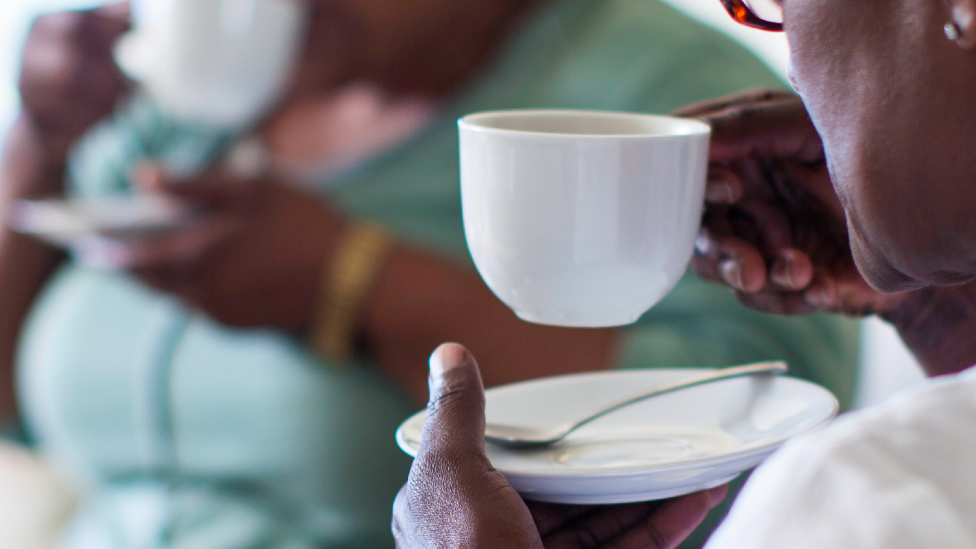
- Published12 May 2020
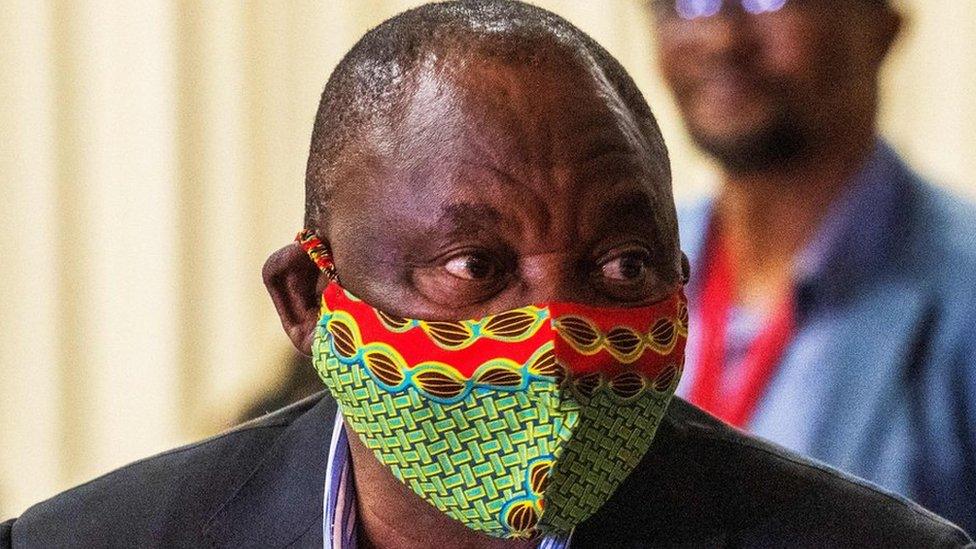
- Published27 May 2020
